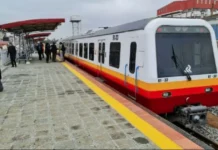The first-ever conference on persistent organic pollutants and African e-waste management took place in Mombasa. Hon. Soipan Tuya, cabinet secretary for forestry, environment, and climate change, presided over the opening ceremony.
African Environmental Health and Pollution Management initiative is a five-year, sixth framework-funded initiative across five African nations, including Kenya, Tanzania, Zambia, Ghana, and Senegal, with the World Bank serving as the implementing agency.
Kenya is implementing a number of measures in accordance with the Stockholm Convention on Persistent Organic Pollutants to safeguard the environment, human health, and e-waste.
“The Government is setting up a pilot e-waste handling facility at Konza Technonopolis to open up the e-waste value chain for wealth and employment creation in line with the BETA blueprint and the Ministry’s circular economy programme,” CS Tuya stated.
She continued by saying that the Ministry is assisting Counties in increasing their ability to manage trash. The construction of Konza’s Material Recovery Facility (MRF), the first in Africa, in collaboration with the World Bank and the Green Environment Facility, she continued, will mark an important turning point in the management of e-waste. There are just two MRFs in the world right now, both located in Europe.
“Kenya generates 51.3 metric tonnes of e-waste each year but only 1 % is collected and recycled. We are working with World Bank and Green Environment Facility to advance sound e-waste management to safeguard our environment and our people,” NEMA Director General, Mamo B. Mamo, EBS stated
The Authority’s 2017 decision to ban single-use plastic carrier bags made the nation cleaner, according to Chairman Emilio Mugo. In order to stop the proliferation of bags entering the nation through the porous borders, he convinced the adjacent countries to enact similar bans.
Abdelaziz Lagnaoui, the World Bank’s Lead Environmental Specialist and Programme TTL, told the audience that the World Bank will continue to work with African nations to increase their capacity to manage e-waste and deal with other new environmental problems that not only Kenya but the entire world community must deal with.
Dr. Charles Lange, the project’s coordinator for environmental health and pollution management in Africa, reports that since the project’s beginning in 2020, 40% of it has been completed.
He emphasised that the initiative has, up to this point, been successful in transferring knowledge to several organisations and people working with e-waste recycling and in increasing their capacity to handle e-waste.













